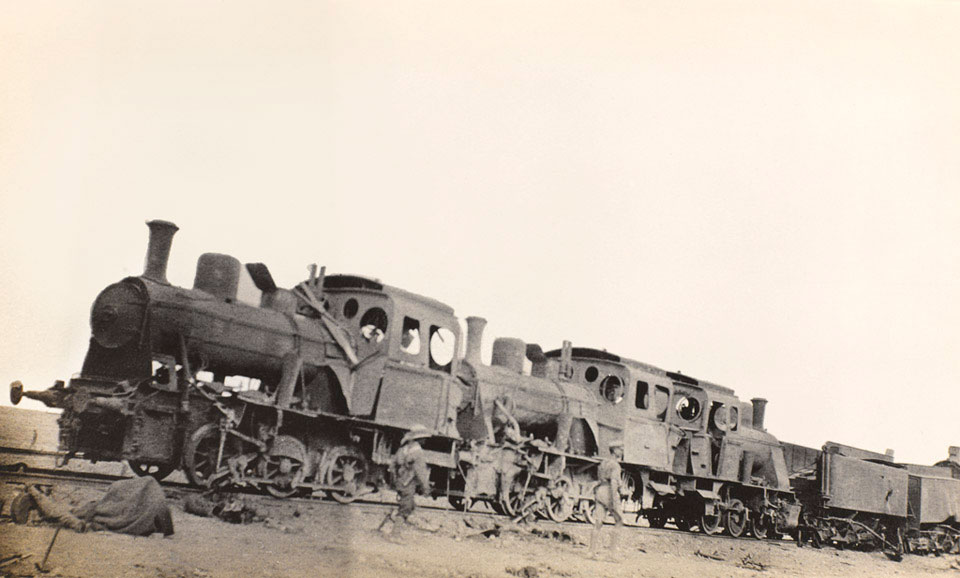
Online Collection
« Prev - 1 of 1 results - Next »
Railway locomotives, Mesopotamia, 1916 (c)
Photograph, World War One (1914-1918), 1916 (c).
The Berlin-Baghdad railway, funded by the Germans with the co-operation of the Ottoman Empire, had yet to be completed when World War One (1914-1918) broke out. One of the aims of the railway project was to link the German Empire to a port on the Persian Gulf and to the oil fields of Mesopotamia. While the great powers were sympathetic to the improvement railways would bring to the region the British, French and Russians all felt their interests threatened by the scheme which was financed largely through Deutsche Bank.
During the Mesopotamian campaign the British, in an attempt to improve supply lines, built a metre-gauge line from the port of Basra to Nasriyah in 1916. Another line was constructed between Kurna and Amara. After Baghdad was occupied in 1917, more lines were constructed including one from Kut-el-Amara to the military camp at Hinaidi, near Baghdad. Elements of the Berlin-Baghdad railway were also utilised and extended. To achieve all this the British were reliant on personnel, locomotives, track and other materials shipped from India.
From an album compiled by Colonel Thomas Claude Catty (1879-1967), 69th Punjabis, 1914-1916.
NAM Accession Number
NAM. 1979-09-40-83
Copyright/Ownership
National Army Museum, Out of Copyright
Location
National Army Museum, Study collection
Object URL
https://collection.nam.ac.uk/detail.php?acc=1979-09-40-83

